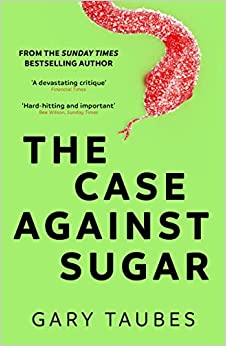In "The Case Against Sugar," Gary Taubes presents a compelling argument that sugar is a major contributor to the epidemics of obesity, diabetes, heart disease, and other chronic illnesses in modern society.
Taubes traces the history of sugar consumption and the evolution of the sugar industry, showing how the industry has influenced scientific research, public policy, and dietary recommendations. He argues that sugar is not just empty calories, but a toxic substance that disrupts our hormones, metabolism, and immune system.
Taubes provides a comprehensive review of the scientific literature on sugar, examining the evidence for its role in metabolic diseases, cancer, and other health problems. He challenges the notion that sugar is simply a matter of personal choice and individual responsibility, and argues that the food industry, government, and public health authorities have a responsibility to take action to reduce sugar consumption.
"The Case Against Sugar" has been praised for its thorough research and compelling arguments. It is a wake-up call for anyone concerned about the health consequences of our sugar-laden diet.
Taubes' book provides readers with a new perspective on the role of sugar in our health and well-being. He challenges us to take a critical look at the evidence and to reconsider our assumptions about sugar and its impact on our health.
In conclusion, "The Case Against Sugar" is a timely and important book that challenges the status quo and calls for action to address the sugar epidemic. Taubes' research and arguments provide a new perspective on the role of sugar in our diets, and his call to action is an urgent reminder of the need to address the health consequences of sugar consumption.
"The Case Against Sugar" by Gary Taubes presents a comprehensive review of the scientific literature on the health effects of sugar consumption. Taubes argues that sugar is a toxic substance that contributes to obesity, diabetes, heart disease, and other chronic illnesses. He traces the history of sugar consumption and the influence of the sugar industry on scientific research, public policy, and dietary recommendations. Taubes challenges readers to reconsider their assumptions about sugar and to take action to reduce sugar consumption. The book is a wake-up call for anyone concerned about the health consequences of our sugar-laden diet.
